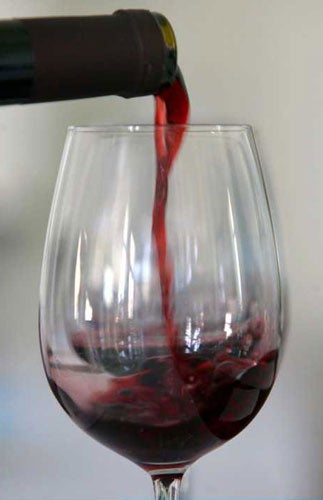More than 10m drink too much, says watchdog

Your support helps us to tell the story
From reproductive rights to climate change to Big Tech, The Independent is on the ground when the story is developing. Whether it's investigating the financials of Elon Musk's pro-Trump PAC or producing our latest documentary, 'The A Word', which shines a light on the American women fighting for reproductive rights, we know how important it is to parse out the facts from the messaging.
At such a critical moment in US history, we need reporters on the ground. Your donation allows us to keep sending journalists to speak to both sides of the story.
The Independent is trusted by Americans across the entire political spectrum. And unlike many other quality news outlets, we choose not to lock Americans out of our reporting and analysis with paywalls. We believe quality journalism should be available to everyone, paid for by those who can afford it.
Your support makes all the difference.More than 10 million people are drinking more than they should, the Government's spending watchdog warned today.
According to the National Audit Office (NAO), 31 per cent of men and 20 per cent of women regularly drink above recommended levels, putting their health at risk.
In a report into health services in England for alcohol misuse, the NAO criticised health providers for failing to have a clear picture of alcohol problems and required spending in their areas.
Hospital admissions for alcohol-related liver disease, mental health disorders linked to alcohol and acute intoxication doubled in the 11 years between 1995-96 and 2006-07, while the number of deaths from alcohol-related causes doubled to 8,758 between 1991 and 2006, the NAO said.
The report called for Primary Care Trusts (PCTS) to be encouraged to focus more on preventative care, such as advice from doctors.
On average, a care trust spends £600,000 a year on commissioning alcohol services, equating to around £91m nationally.
This represents a fraction of the £2.7bn cost to the NHS of alcohol misuse.
Based on a survey of PCTs, the NAO report concluded that efforts to address the problem locally were not, in general, well planned.
It said that a quarter of trusts had not fully assessed alcohol problems in its area. Moreover, many do not have a clear picture on spending on treatments to address alcohol misuse and the knock-on effects on long-term health.
The NAO report recommends that the Department of Health provide greater leadership to PCTs through measures such as guidance on causes of misuse and trends in their localities.
It said that in England, 7.6m people (18 per cent of the adult population) were drinking at "hazardous" levels and a further 2.9m (7 per cent) were showing evidence of harm to their health, including 1.1m adults with alcohol dependency.
Tim Burr, head of the National Audit Office, said: "Alcohol misuse constitutes a heavy and increasing burden on the NHS.
"If services to tackle alcohol misuse are going to make a bigger difference, Primary Care Trusts need to understand better the scale of the problem in their local communities.
"With its increased focus on the prevention of lifestyle-related illness, the Department of Health could, for example, do more to convince trusts about the value of timely advice to help people develop safer drinking patterns."
MP Edward Leigh, chairman of the Committee of Public Accounts, said: "England is suffering an epidemic of drinking. Many drinkers are endangering their health and wellbeing and placing a huge burden on the health service.
"Official advice on safe drinking levels is plentiful, but new guidelines issued in 1995 on daily safe limits are unknown to many."
Mr Leigh said many drug and alcohol action teams were concerned mainly with drug abuse and called on the Department of Health to provide leadership to PCTs "by setting a framework on how they should approach alcohol misuse".
Shadow health secretary Andrew Lansley said: "Ministers have failed to deliver a coherent strategy to tackle alcohol misuse. On the one hand they extend licensing hours, while on the other they chastise 'happy hours'.
"The Conservatives will make tackling public health problems a priority because we understand that it makes good economic and social sense to do so."
Liberal Democrat health spokesman Norman Lamb said: "This is a damning indictment of the confusion that is paralysing action to tackle alcohol misuse.
"There can be no excuse for local health trusts failing to have an alcohol strategy.
"The alcohol industry and retailers must be at the forefront of efforts to introduce a more sensible drinking culture in this country."
Public Health Minister Dawn Primarolo said: "The Government is doing more than ever to tackle the harm that alcohol causes to our health.
"In July 2007 we published a major cross-Government alcohol strategy, a £10m campaign is warning people about the dangers of drinking too much and we have just completed a public consultation questioning whether we need tougher action on alcohol.
"Most PCTs with high levels of hospital admissions have already decided to tackle this as a local NHS priority. We have appointed Regional Alcohol Managers to support the local NHS and develop regional strategies to reduce alcohol misuse."
"The findings from this report will add to our knowledge of the health harms from alcohol."
Join our commenting forum
Join thought-provoking conversations, follow other Independent readers and see their replies
Comments